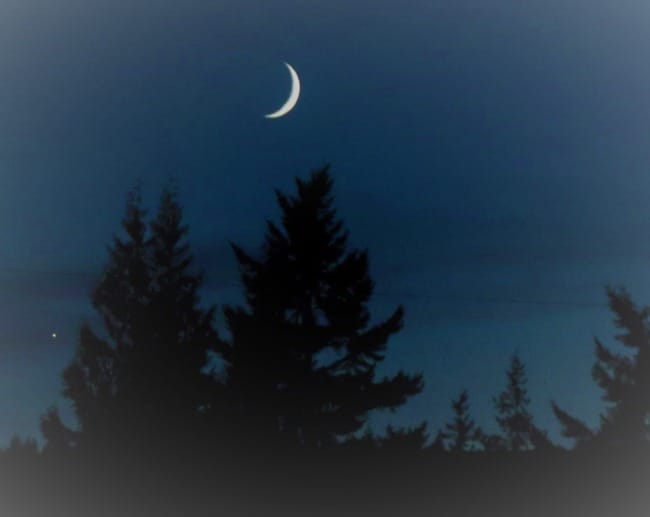My journey of becoming an ecological disciple began with my learning about Celtic Christian spirituality. I was taught first and foremost about the importance of creation. For years I had compartmentalized church and nature. I had passed by and through beautiful landscapes to enter into a church building which is where I believed one should pray and encounter God. Creation was simply window dressing on the other side of beautiful stained glass windows.
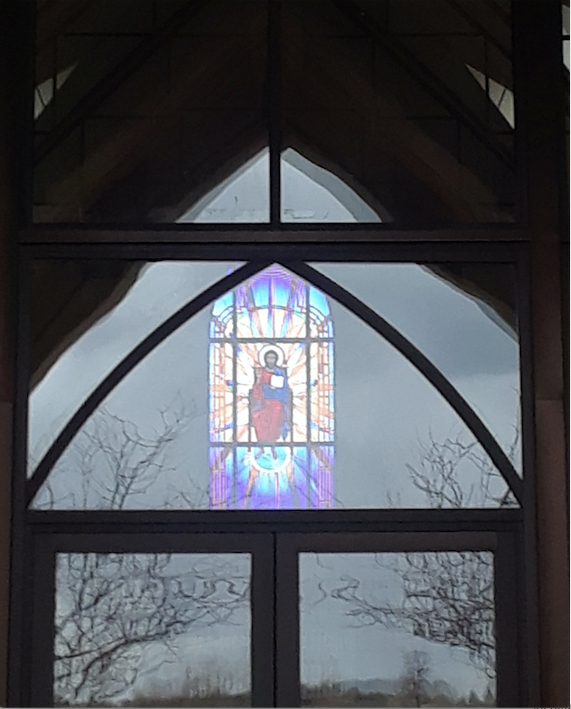
From Genesis I had learned that creation was good. But that was not the same as being holy or sacred. I learned, however, from the ninth century Celtic philosopher, John Scotus Eriugena, who wrote that not only is creation good; it is sacred because creation is a theophany, that is, a manifestation of God. To use the words of one of James Amadon’s shifts, God’s ongoing presence can be discerned in creation. Because that is so, I began to see that holiness existed not just in church but in creation. I realized that we should reverence creation just as we do the scriptures, Jesus, the cross, and the sacraments.
As I grew in my reverence for nature, I began bringing the elements of earth, air, fire and water into my home to be a visible reminder of the sacredness of creation. I brought those same elements into Celtic worship services at the churches where I served as an Episcopal priest.
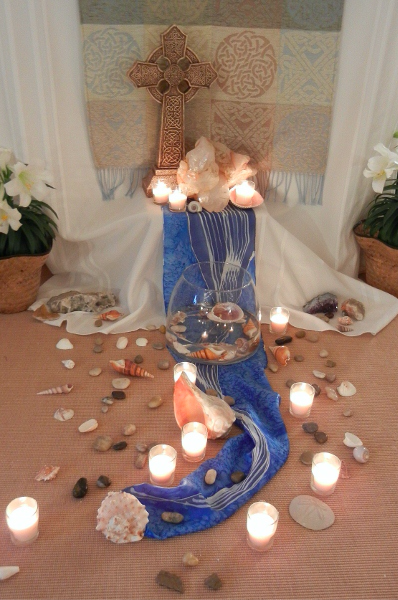
And then, thanks to the pandemic of 2020, I found myself not bringing the elements indoors but instead I began going outdoors to them. Because of church closures, I found myself worshipping in creation. I had learned that early Celtic people had gathered around standing stones to worship. After the introduction of Christianity, the familiar Celtic High Cross replaced the standing stones.
I began praying and meditating not around standing stones but among standing trees. I found a special place on a trail in a state park overlooking the Saratoga Passage in Washington State which I named, “Madrone Chapel.”
There I had a pew beneath a Madrone tree cross overlooking the sea. The light shimmering through the trees was as beautiful as any stained glass window. Angels masquerading as birds were my choir. A baptismal font disguised as a stream made me feel born anew. In the summer of 2020, I found Madrone Chapel to be a refuge inviting me to hope amidst the pandemic’s masking and closure of so much I knew and loved.
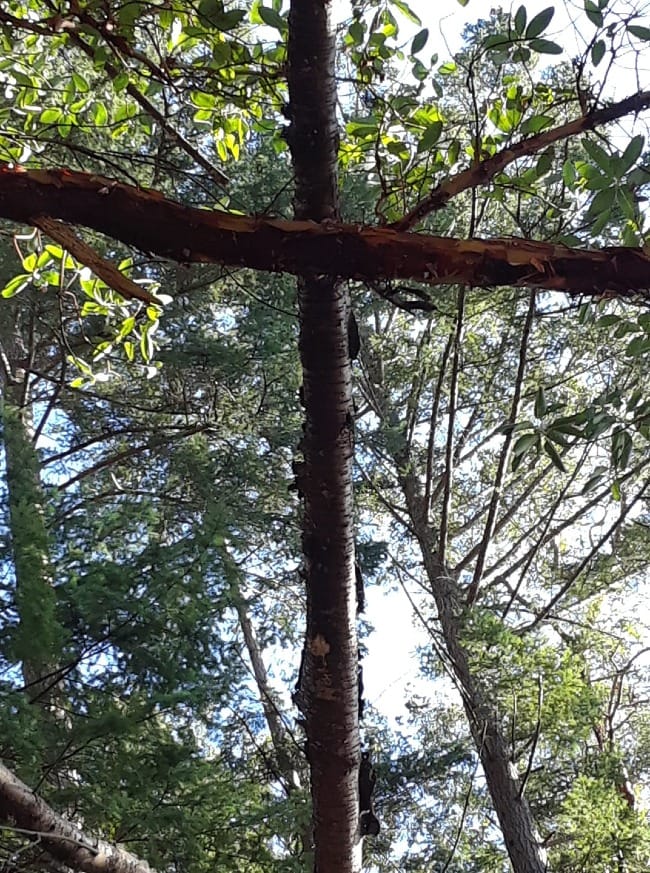
One day, I had my eyes closed in meditation when I heard a sound of rushing air and water. I opened my eyes. There was a gray whale spouting right below me! It was a sight and joy to behold. I spoke to the whale, “You are beautiful. Will you show me your fluke?” And a few seconds later it did! Then the whale began swimming south. The upper trail I was on also ran south, exactly parallel to the swimming whale. For twenty minutes, I went whale walking! A portion of Psalm 104, “Yonder is the great and wide sea with its living things too many to number, creatures both small and great. There move the ships. And there is that Leviathan, which you have made for the sport of it.” (Vs. 26, 27)
It was a moment of profound awe. I experienced it as God and creation calling me to sink beneath the lockdown of the ravaging storyline which in my mind detailed everything that was wrong with the world. Instead, I paused and rejoiced that I breathe the same air as that magnificent whale. I heard the hymn of creation sing the words of the mystic Julian of Norwich, “All is well. And all shall be well. And all manner of things shall be well.”
Besides worshipping in nature, I turned to creation for spiritual healing. Recently, I realized that I had been carrying a heavy burden because of a rift in a personal relationship. I knew that the relationship could not be healed until I released the anger that I had which had led to conflict in the first place.
I headed to a rocky beach to conduct a ritual of letting go. I decided to look for the ugliest rock on the beach that would symbolize the ugliness I had been experiencing. My plan was to throw it into the sea as a gesture of release. It took me a long time to find what looked like the perfect ugly rock. At last, I found one!
As I looked at it intently, the rock was transformed in my hand. I became aware of just how incredibly beautiful this one small piece of creation is! I put it down and thought, I must a find a really complex rock to represent my dilemma here. The more I looked at the surrounding landscape, the more beautiful it all became. I had a distinct feeling of merging and becoming one with every rock. In the end, I closed my eyes and picked up one rock and gently returned it to the water.
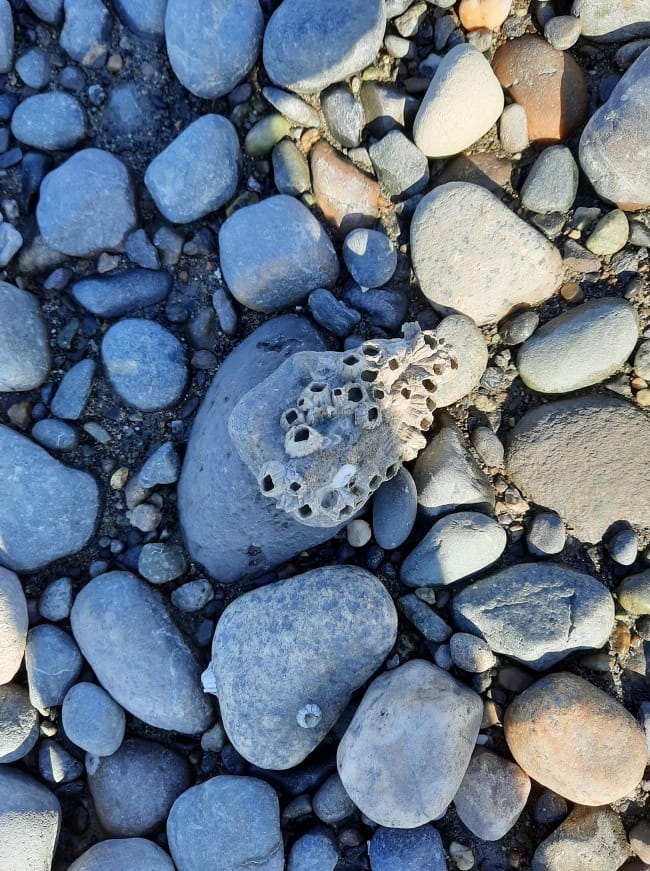
It was as if creation had heard my confession and the thoughts of my heart had been cleansed by God and I found myself in a state of peace, love and joy. Forgiveness flooded my heart and I felt a deep compassion for the person who had wounded me.
I certainly experienced what James Amadon has articulated in one of his shifts. I experienced myself as a part of creation and not apart from creation. To use the words of contemplative monk and priest, Thomas Merton, I had a “keen awareness of the inter-dependence of all living things which are all part of one another and involved in one another.” I was humbled but also ecstatic to experience that I was also included in all living things.
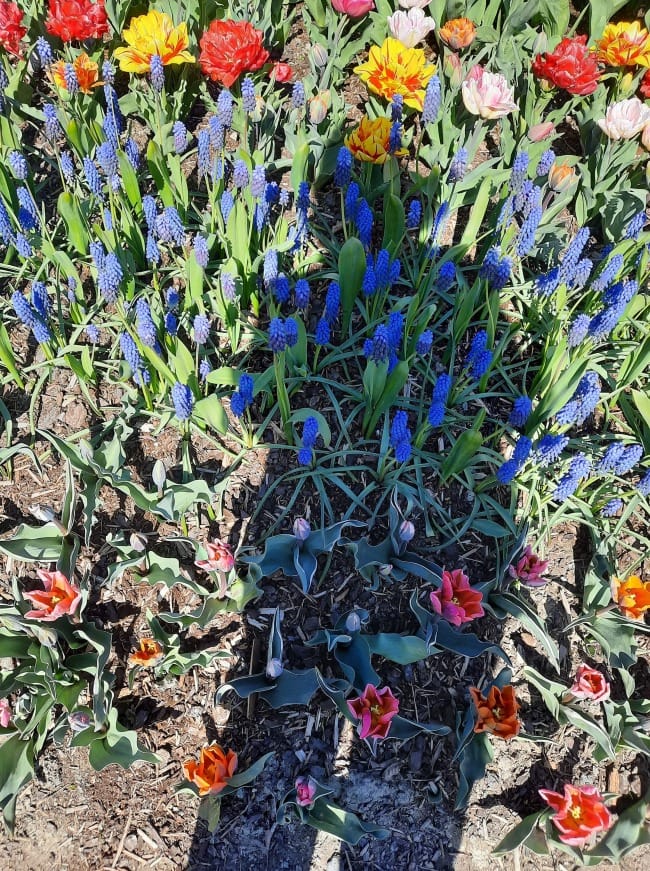
My experiences of God’s love acting in and through creation have helped me to integrate that with my love of liturgical prayer. My experience of creation and church enrich one another. It is often said in many parts of our world-wide culture, “We must do what we can now to save our planet from destruction.” I agree and that is why I am trying my best to walk the path of ecological discipleship. And yet the path is certainly a two-way road. The more time I have spent simply being in God’s magnificent creation, the more I am feeling saved, that is—made whole. And my wholeness is contributing to my ability to make more ecological choices in my lifestyle.
A friend of mine wrote a chant with this text. “Holy, Wholly, Holy One. All the universe is full of your glory! All the universe is full of your love.” (Kristopher E. Lindquist) My unceasing prayer for humanity is that all may discover this holiness, this wholeness, this love. May it be so. Amen.
Rev. Elaine Breckenridge
To leave a comment or to share this post, click here.
